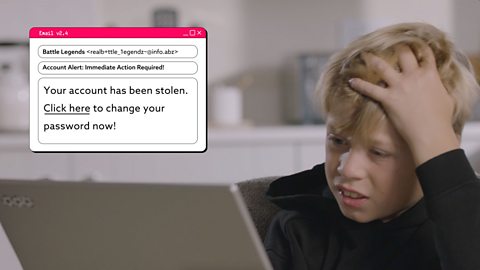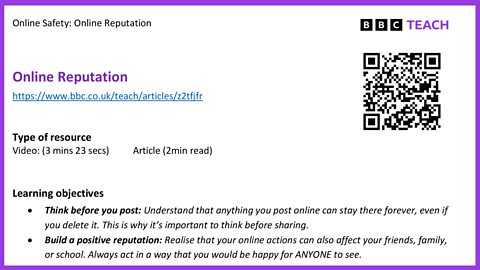Everything you do online, whether it's posting pictures, commenting, or liking something, helps build a digital footprint. Leaving a mark of where you've been. This can be a really fun and positive thing. You can share things that reflect who you are, like your hobbies or interests, and you can become known online as being someone that acts like a good friend. But once something is shared online, it's hard to take back. Think carefully before posting or commenting, especially about anything that could hurt others or damage your reputation.
Imagine you're in a classroom and there's a whiteboard. You've got two marker pens. One is a whiteboard marker and the other is a permanent marker. With a whiteboard marker, you can write anything you want—fun drawings, notes, or doodles. But the great thing about the whiteboard marker is that you can erase it whenever you like. If you make a mistake, no problem. It's gone in a flash. Now think about the permanent marker. You can still write whatever you want, but if you write on the board with that pen, it stays there. You can't just wipe it away, even if you realize later that you made a mistake. It is stuck there for everyone to see. Awkward.
Your online reputation is a lot like using a permanent marker. What you post online—comments, pictures, or videos—can stay there forever. So it's important to think carefully before you post or comment, making sure it's something positive, reflecting the best version of who you are.
This video is a bit weird. I guess some people still like dancing cats. Let's look at some comments. "Your voice is so annoying. Why are you even posting videos?" That's kind of mean. "This is trash. Thought you were supposed to be funny." Maybe I should comment. Why? Think about the video as well? "Yeah, this was pretty bad lol." "Dinner's ready. Don't let it get cold."
Hey, these comments are going to be nice for the person who made the video to read. I'll say something good instead. They obviously worked hard to make the video. Loved the graphics. Why don't we have a cat that can dance?
So when it comes to having a good online reputation, always remember anything you post can stay online forever, even if you delete it. Think before sharing. Your actions online can impact your friends, family, or school. Always act as if anyone could see it. Lastly, your online reputation is limited to what others can see. Build it by being responsible and kind in what you share or comment on.
That's it. Do you want to see a video of a dancing cat?
Video summary
- Emma-Louise Amanshia introduces the topic of online reputation, explaining how the things we do online create a digital footprint, and the possible positives and negatives involved when leaving this footprint.
- The video uses the analogy of writing on a whiteboard with a permanent marker to further illustrate the point that some things you post online never go away.
- A short drama shows a young person watching a video online and seeing lots of mean comments, before deciding to post a nice comment instead.
- Emma-Louise offers final tips and advice.
Video: 3min 23sec
Learning objectives
- Think before you post: Understand that anything you post online can stay there forever, even if you delete it. This is why it’s important to think before sharing.
- Build a positive reputation: Realise that your online actions can also affect your friends, family, or school. Always act in a way that you would be happy for anyone to see.
- Be responsible: Learn how the things you share or comment on can affect how others see you. A good online reputation is built by being responsible and kind.
Glossary
- Digital footprint: all the things that you do online (e.g. what you post, what you watch, what you like, etc.).
- Online reputation: what others might think of you based on your digital footprint.
- Posting: comments, photos and videos that you share online.
- Commenting: when you post something on/under something online, often to say something about it
Topic introductions and starters
Before the video:
- What might a young person your age share online?
- What do you think we mean by ‘online reputation’?
- Can you think of a positive example of something to share online?
- What would be a negative thing for someone to share online?
After the video:
- What does the character think about the dancing cat video first?
- How would you describe the comments that the character sees under the video?
- Why does the character decide to not post a mean comment like the ones already on the video?
- What kind of comment does the character decide to post instead?
- Why would this kind of comment give the character a positive online reputation?
Activities
- Write 5-10 online comments that might help create a positive online reputation. Learners could present these in a foot shape stencil to emphasise the idea of a digital footprint.
- Keep a diary for a week of all the times you use a device or go online. Can you spot any examples in your diary that help add to your positive online reputation?
- Create a top tips poster, advising other young people about how to create a positive online reputation.
More from: Online safety
How to manage your online self-image and identity video
Introduces the topic of self image and identity online, giving examples of how someone might express themselves.
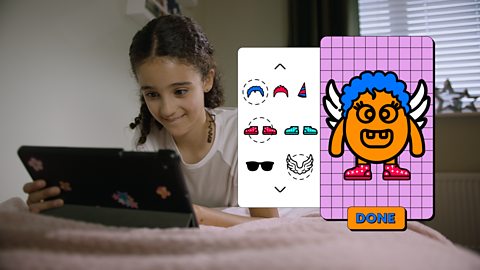
What are online relationships? video
Explains the different types of relationships we might have online, and some of the risks involved when talking to people online we don’t know.
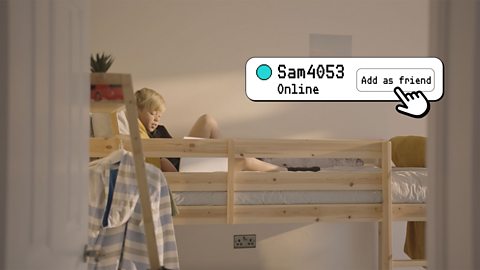
What is online bullying? video
Introduces the topic of online bullying and what this could look like, as well as giving some ideas of what to do if you encounter it.
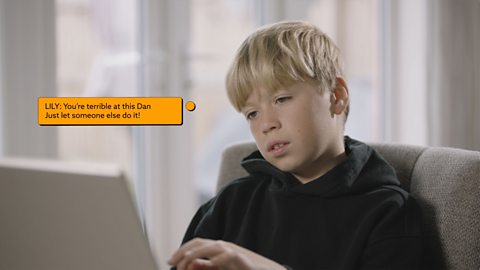
How to find reliable information online. video
An introduction to the topic of managing online information – discussing the positives and negatives.
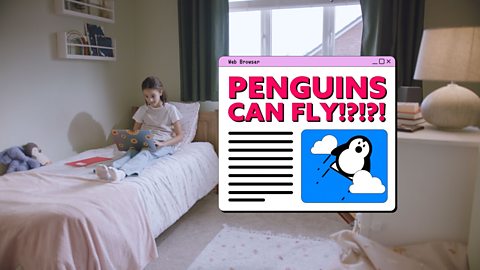
How to balance your screen time – health and wellbeing online. video
Explains that going online can have positive and negative impacts, so we need to balance our time online and offline.
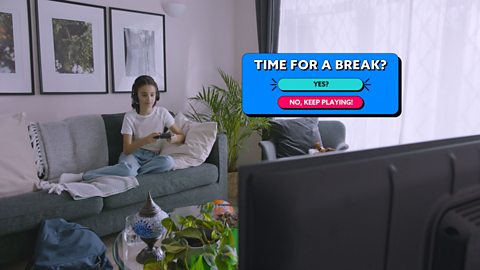
How to keep your information safe online video
Introduces the topic of privacy and security, explaining that personal information shouldn’t be shared online and that passwords should be strong.
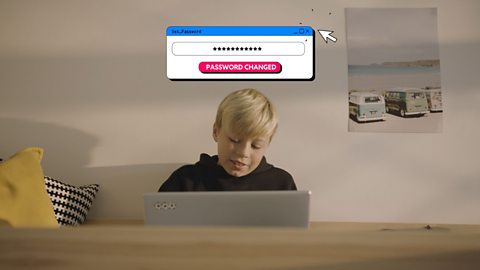
What is copyright and ownership? document
Introduces the topic of 'copyright and ownership', explaining that the creative content that people post online belongs to them.
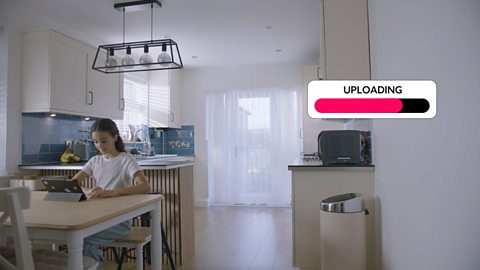
Scams: Safer Internet Day resources for 7-11-year-olds. video
Introduces the topic of scams, explaining that people online sometimes try to trick us into giving them personal information or money.
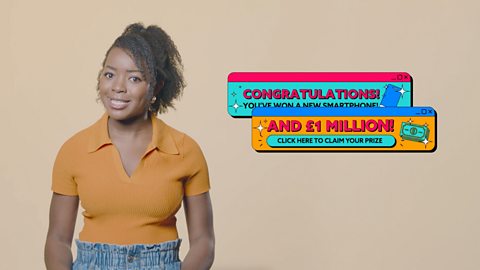
Phishing: Safer Internet Day resources for 7-11-year-olds. video
Introduces the topic of phishing, explaining that it is when someone tries to trick you into giving out your personal details online, like passwords or bank information.
